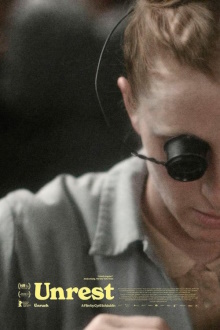This is like only the second Swiss film I’ve written about here and it’s a very idiosyncratic one even by the standards of the films I watch. There’s no real plot as it’s almost purely exposition, portraying the way of life in the Saint-Imier valley in Switzerland in the late 19th-century. There are two distinctive elements here: the watchmaking industry that dominates the economy and the strength of the anarchist political movement among the residents. It’s an odd juxtaposition, made especially so by the film’s obsession with measurements of time, distance and money. Director Cyril Schäublin’s sympathy for the anarchists is obvious but I’m not quite sure what to make of the rest of it even as it continues to fascinate and engross me.
From the opening scene in which a group of ladies in elaborate gowns gather for a group photograph, but converse knowledgeably about the anarchist movement and the famous figures in it, you know this is no ordinary drama. It ostensibly follows two characters, the Russian geographer Pyotr Kropotkin who is making a new map of the Saint-Imier valley, and Joséphine Gräbli, a skilled worker in the local watch factory. But it’s really a wide-ranging overview of the different people who live there and the unconventional way that their lives are organized. There are the gendarmes who seem oddly cheerful as they enforce local rules, preventing people who haven’t paid their taxes from voting or keeping them out of the way while a photographer takes photos of the watch factory for a catalogue. There’s the enterprising photographer who sells prints of famous people and discovers that those depicting the heroes of the anarchist movement are especially popular. Or the workers in the separate workshop that makes the casing for the watches, who clap and cheer when someone reads out messages of encouragement and gratitude from other chapters of the anarchist movement all over the world.
I’m not sure if this is meant to be historically accurate as the way society is organized as shown here seems so strange that it feels almost like science-fiction. When Pyotr goes to the telegraph office to send a message for example, he is asked which time standard he wishes to use and there is no single unified timekeeping in the valley. The watch factory where Joséphine works is obsessed with precise measurements to an unearthly degree. The supervisors in white coats walk around carrying pocket watches and clipboards as they work out the most efficient paths to navigate the factory compound and optimize production processes. The townsfolk’s idea of fun seems to be to hold events to raise funds for the anarchist cause, to celebrate their victories and commemorate their martyrs. Residents who don’t pay their taxes are refused service at the local tavern. The most important man in town, the owner of the factory Mr. Roulet, is decidedly not an anarchist, but even he praises the speed and accuracy of the anarchists’ news channels. It’s so fascinating to watch these surreal scenes that seem too unbelievable to have ever actually happened.
Far from sweeping across what must be a beautiful landscape, the camera often uses non-cinematic angles, placing the characters in one corner of the frame or showing only a portion of a larger scene. It’s a deliberate choice that reinforces the unconventional nature of this film and highlights the strangeness of a place that is a hive of anarchist politics, yet is so ordered and bound by rules and precise numbers. They don’t even seem much like how we’d imagine anarchists would behave. Even as the ambassador from the outside complains about the movement inciting riots and making assassination attempts elsewhere in Europe, the anarchists in this valley are unfailingly polite and rule-abiding. They don’t so much as raise a peep when Mr. Roulet dismisses them from his employment, and instead docilely collect their belongings and outstanding wages. I don’t know what to make of it. Perhaps Schäublin thinks that the movement is romantic but is also skeptical that it could ever work over the long-term?
If the Saint-Imier valley that is shown in this film ever truly existed, the director makes it clear that it no longer does. I don’t think anarchism is a practical political ideology and this film doesn’t even come close to changing my mind. But I concede that this is a unique film on the subject and really motivates the viewer to think about how it could work. That’s enough to mark this as being amazing by my reckoning.
